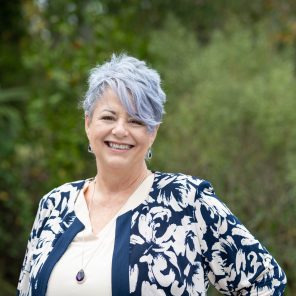Paula Maness is a compassionate, practical, and deeply experienced therapist who specializes in working with older adults, adult children of aging parents, and those navigating chronic illness, pain, or significant life transitions. Her work is grounded in evidence-based approaches such as Acceptance and Commitment Therapy (ACT), Cognitive Behavioral Therapy (CBT), and Dialectical Behavior Therapy (DBT). She holds a trauma-informed perspective, always prioritizing emotional safety and honoring each individual’s unique story.
Paula Maness
Psy.D.

Specialties
Anger ManagementAntisocial PersonalityAnxiety DisordersBorderline Personality DisorderChristian CounselingChronic IllnessCodependencyCoping SkillsDepressionDomestic AbuseDual DiagnosisFamily ConflictLife TransitionsMen’s IssuesTrauma/PTSD
Learn more about Paula Maness
What I enjoy most about working with older adults is their honesty. They don’t have time for fluff—and I respect that. Whether they’re telling me about the love of their life or the best way to cook a pot roast, I get to witness real wisdom wrapped in humor, heartache, and grit. There’s something sacred about helping someone reflect on where they’ve been while still holding hope for where they’re going. I always say, just because there’s snow on the roof doesn’t mean the fire’s gone out.
Online therapy can be surprisingly effective for older adults—especially when it removes the stress of traffic, bad weather, or having to “get up and go” when bodies don’t always cooperate. Once we get past the tech hiccups (and we will get past them), it often becomes a safe, cozy space to talk from the comfort of home. I’ve had folks open up more freely from their favorite recliner than they ever would in a formal office. It’s not about the screen—it’s about the connection, and that still translates loud and clear.
I approach therapy like a conversation with a purpose. I’m not here to analyze you with a clipboard—I’m here to walk beside you and help make sense of the hard stuff. Some days that means deep reflection, other days it means sharing a laugh to break the tension. I use evidence-based tools like Acceptance and Commitment Therapy (ACT), which helps us focus on what really matters to you, even when life gets messy. I also take a trauma-informed approach, which means I’ll always honor your story and your safety first. My goal is to create a space where you feel safe, seen, and never judged. We’ll take it at your pace, one honest moment at a time.
My advice? Don’t worry about doing it “right.” Therapy isn’t a performance—it’s a process. You don’t have to have the perfect words, the full story, or even know exactly what you’re feeling yet. Just show up. We’ll figure it out together. It’s normal to feel nervous or unsure in the beginning, but that doesn’t mean you’re doing it wrong—it means you’re brave enough to try.
One thing I always tell new clients: therapy is different from talking to a friend. Your friends might mean well, but they often jump in with advice or their own stories. In therapy, it’s all about you—your voice, your experience, and your healing. And if you’ve been carrying heavy things for a long time, we’ll go gently. You don’t have to spill it all at once. Just start where you are, and we’ll go from there.
Therapists Who Understand Aging
Have Hope After Three Sessions
After three sessions a majority of clients have hope that their situation is improving.
YOUR THERAPIST IS A CLICK AWAY
Start Your Journey Towards Better Health

Reach out to us through our website or by phone. We’ll verify your Medicare coverage to see if you qualify for free therapy sessions.


After discussing your needs, we recommend one of our experienced therapists and schedule your first appointment.


Therapists Who Understand Aging
See Change After Six Sessions
After six sessions a majority of clients have reflected that actual change occured.

